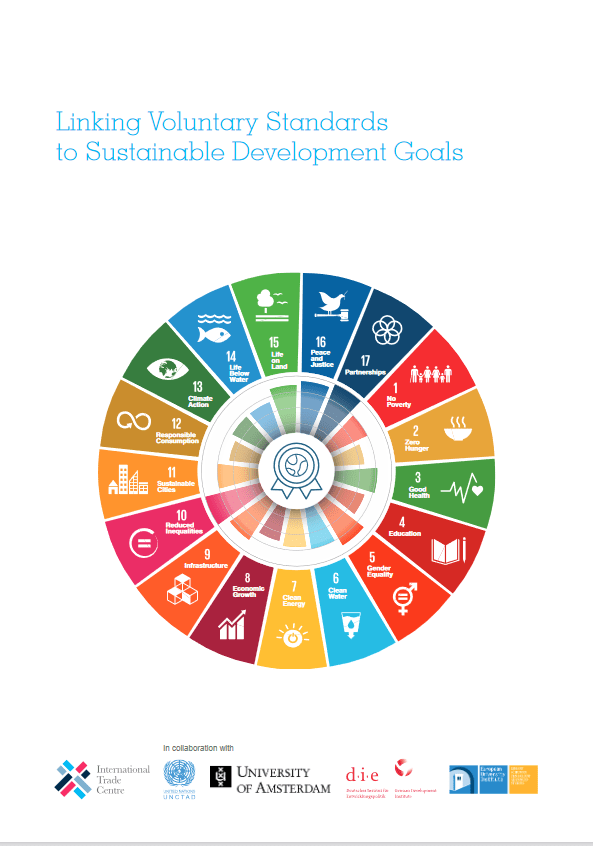︎

Philip Schleifer
University of Amsterdam
Philip Schleifer is Associate Professor of Transnational Governance at the Political Science Department at the University of Amsterdam (UvA). Prior to his appointment at the UvA, he was a Max Weber Fellow and the European University Institute and held visiting positions at Duke University and the Grantham Research Institute on Climate Change and the Environment. He holds a PhD in International Relations from the London School of Economics. Schleifer’s resarch agenda focuses on the politics and and governance of sustainability in the global economy. His past and present projects investigate the effectiveness and transparency of voluntary standards in global value chains, the design of hybrid biofuel governance in the European Union, and the political economy of sustainable commodity production in emerging economies.
MORE ABOUT PHILIP SCHLEIFER >Kate Macdonald, Rachael Diprose, Janina Grabs, Philip Schleifer, Justin Alger, Bahruddin, Ben Cashore, Paul Cisneros, Deborah Delgado, Rachael Garrett, and William Hopkinson
Jurisdictional Approaches to Sustainable Commodity Governance
Jurisdictional approaches (JAs) have emerged over the past decade as a significant mode of sustainable commodity governance, particularly in tropical forest countries. JAs are characterized by multi-stakeholder initiatives with substantial government involvement, aiming to integrate environmental, s...

Seminar Series| Producing and consuming responsibly: To what extent does German development cooperation contribute to sustainable textile supply chains?

Philip Schleifer and Luc Fransen
Towards a Smart Mix 2.0? Understanding Political Dynamics of Heterogeneity and Integration in Sustainable Supply Chain Governance

2022
Philip Schleifer and Luc Fransen
Towards a Smart Mix 2.0 – Harnessing Regulatory Heterogeneity for Sustainable Global Supply Chains
Over the past three decades, efforts to address human rights and environmental risks in global supply chains have spurred a plethora of industry self-regulation, third-party certification schemes, voluntary due diligence guidelines, and mandatory supply chain regulations. The resulting heterogeneity...
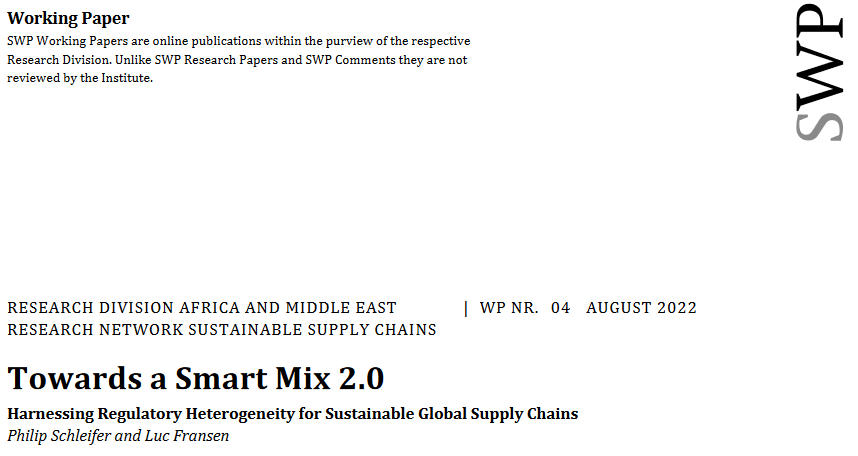
2018
Philip Schleifer
Varieties of multi-stakeholder governance: selecting legitimation strategies in transnational sustainability politics
Multi-stakeholder initiatives (MSIs) are often referred to as the ‘gold standard’ of private governance. However, existing MSIs vary strongly in their institutional designs and the ways in which they use inclusiveness, procedural fairness and, expert-based strategies to create legitimacy for the...
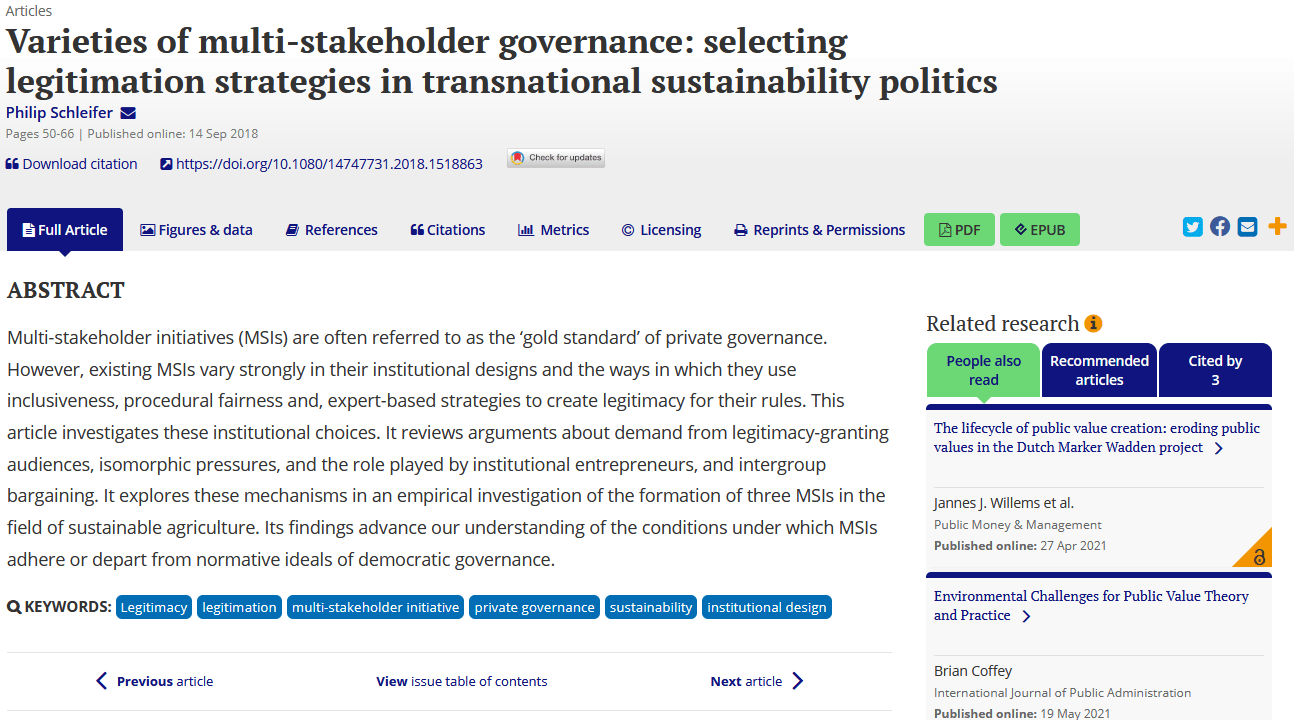
2020
Philip Schleifer, Yixian Sun
Reviewing the impact of sustainability certification on food security in developing countries
What is the impact of sustainability certification on food security in developing countries? This article explores the issue through a systematic review of the extant scholarship, complemented by a selective review of key studies examining the wider socio-economic effects of certification that may a...
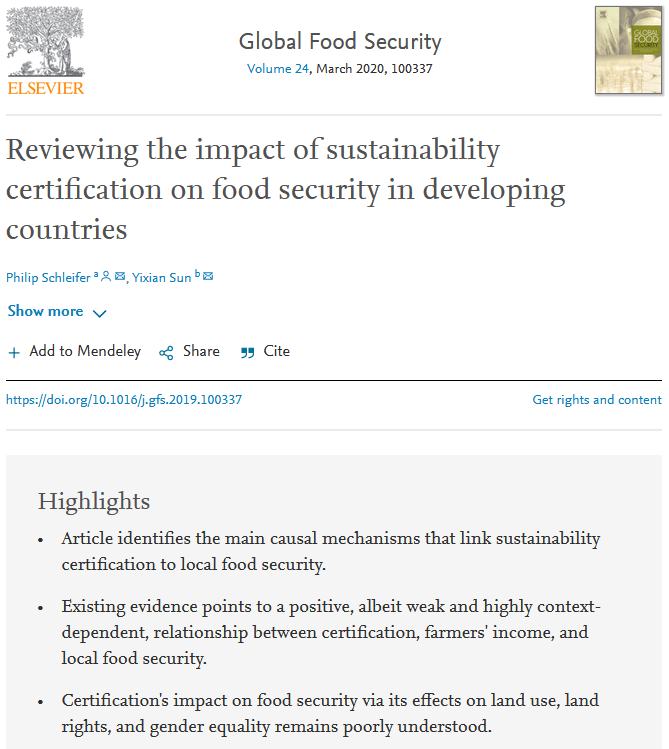
2022
Philip Schleifer, Clara Brandi, Rupal Verma, Katharina Bissinger, Matteo Fiorini
Voluntary standards and the SDGs: Mapping public-private complementarities for sustainable development
To strengthen global sustainability governance, academics and policymakers have called for a better integration of private governance with public policy instruments. Surprisingly, however, systematic research on the state of such public-private complementarities in the field of sustainable developme...
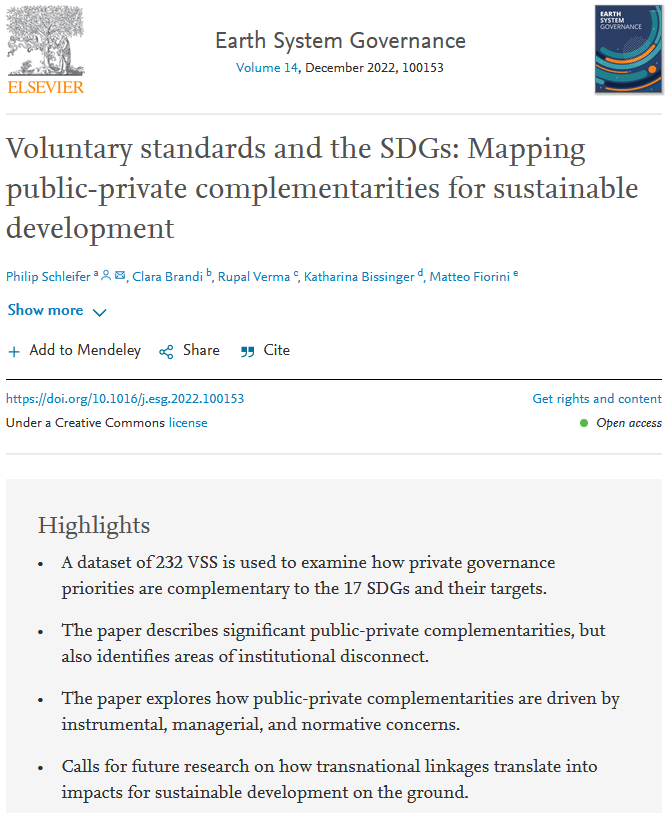
2020
Sandra Cabrera de Leicht, Matteo Fiorini, Clara Brandi, Philip Schleifer, Katharina Bissinger, Niematallah Elfatih Ahmed Elamin, and Santiago Fernandez de Cordova
Linking Voluntary Standards to Sustainable Development Goals
With the 2030 Agenda for Sustainable Development, the United Nations has called on the private sector to
contribute more to achieving the Sustainable Development Goals (SDGs).
This report helps decision makers in the public and private sectors to understand where voluntary
sustainability standard...
